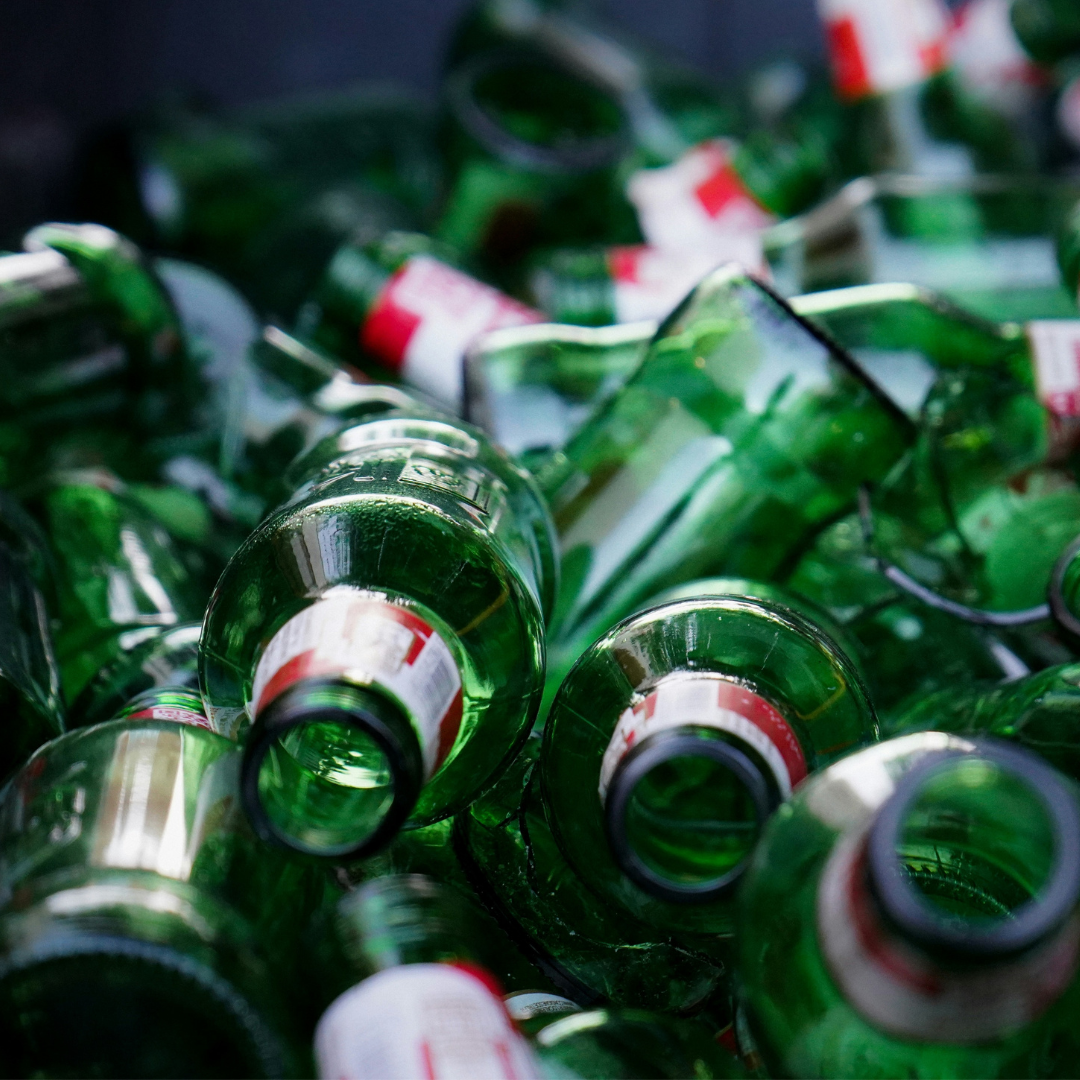
The Environmental Benefits of Using Glass Products
Glass – A Sustainable Choice
In an era where environmental consciousness is more critical than ever, glass stands out as a sustainable and eco-friendly material. Its versatility, durability, and recyclability make it a valuable resource for reducing environmental impact. Unlike plastics, which contribute heavily to pollution, glass is a natural, inert material that can be reused and recycled indefinitely without loss of quality.
This article explores the environmental benefits of glass products, shedding light on why choosing glass over other materials is an essential step toward a greener future.
Glass Is 100% Recyclable
One of the most significant environmental benefits of glass is its recyclability.
Infinite Recyclability
- Glass can be recycled endlessly without losing its purity or strength.
- Unlike plastic, which degrades in quality during recycling, glass maintains its integrity.
Energy Savings
- Recycling glass saves approximately 30% of the energy required to produce new glass from raw materials.
- Every ton of recycled glass saves over a ton of natural resources like sand, soda ash, and limestone.
Closed-Loop Recycling System
- Many glass products are part of a closed-loop system where they are collected, melted, and reformed into new items, reducing landfill waste.
Fact: Recycling one glass bottle saves enough energy to power a 100-watt light bulb for four hours.
Glass Reduces Plastic Pollution
The growing global plastic crisis highlights the urgent need for alternative materials.
Glass as a Plastic Alternative
- Glass offers a durable and reusable option for packaging, tableware, and storage.
- By replacing single-use plastic items with glass, we can significantly reduce plastic waste in oceans and landfills.
Microplastics vs. Glass
- Plastic breaks down into microplastics that pollute ecosystems and harm wildlife.
- Glass, being inert, does not degrade into harmful substances, making it safer for the environment.
Glass Is Made from Natural Materials
Glass production uses abundant, natural resources, making it an environmentally friendly choice.
Raw Materials
- Sand, soda ash, and limestone are the primary components of glass, all of which are naturally occurring and widely available.
- Unlike synthetic materials, glass does not require petroleum-based ingredients.
Non-Toxic and Inert
- Glass does not leach chemicals into its contents or the environment.
- It is a safe choice for food and beverage storage, particularly compared to plastic containers.
Glass Promotes a Circular Economy
A circular economy focuses on reusing resources to minimize waste. Glass aligns perfectly with this model.
Reuse Potential
- Glass containers, such as jars and bottles, can be reused multiple times before recycling.
- Many glass products, like decor items and furniture, are long-lasting and retain value over time.
Reduced Resource Extraction
- Recycling glass reduces the need for extracting raw materials, minimizing environmental degradation.
- It also reduces energy consumption during manufacturing.
Glass Products Have a Long Lifespan
Durability is a key factor in reducing waste.
Longevity of Glass
- High-quality glass products can last for decades with proper care.
- Unlike plastic, which may deteriorate or warp over time, glass retains its form and functionality.
Reduced Landfill Waste
- The long lifespan of glass reduces the frequency of replacement, cutting down on landfill contributions.
- Even when disposed of, glass is more likely to be recycled than other materials.
Energy Efficiency in Glass Production
Modern advancements in glass manufacturing have significantly improved its energy efficiency.
Use of Recycled Materials
- Using recycled glass (cullet) in production reduces the energy needed to melt raw materials.
- Every 10% increase in cullet use reduces energy costs by 2–3%.
Innovative Manufacturing Techniques
- New technologies, such as electric melting, have further reduced carbon emissions in glass production.
Eco-Friendly Applications of Glass
Green Building Materials
- Glass is widely used in energy-efficient windows and insulation, reducing heating and cooling costs.
- Solar panels often incorporate glass as a key component for capturing energy.
Reusable Packaging
- Glass jars and bottles are ideal for zero-waste lifestyles.
- They can be used for bulk shopping, food storage, and DIY projects, promoting reuse over disposal.
Artistic Upcycling
- Broken or discarded glass can be upcycled into art, jewelry, or decorative items, giving it a second life.
Challenges and Opportunities
While glass is environmentally friendly, it does have challenges that need to be addressed.
Energy-Intensive Production
- Glass manufacturing requires high temperatures, leading to significant energy use.
- Solution: Increased reliance on renewable energy sources can mitigate this impact.
8Recycling Infrastructure
- Not all regions have robust glass recycling systems.
- Solution: Governments and industries can invest in better collection and recycling facilities.
How Consumers Can Make a Difference
Consumers play a vital role in promoting the use of glass and reducing waste.
Choosing Glass Over Plastic
- Opt for glass packaging for food, beverages, and cosmetics.
- Support brands that prioritize sustainable glass production.
Reusing and Repurposing
- Get creative by repurposing glass jars and bottles for storage, decor, or gardening.
- Participate in local glass recycling programs to ensure proper disposal.
Supporting Recycled Glass Products
- Purchase items made from recycled glass to support the circular economy.
- Look for eco-friendly certifications when buying glass products.
The Future of Glass and Sustainability
As industries and consumers embrace sustainability, glass will continue to play a pivotal role in reducing environmental impact. Emerging technologies, such as self-healing glass and bio-based coatings, promise to make glass even more eco-friendly in the future.
Embrace Glass for a Greener Tomorrow
Glass is more than a functional material; it’s a symbol of sustainability and environmental responsibility. Its recyclability, durability, and natural composition make it an essential ally in the fight against pollution and waste.
By choosing glass products, supporting recycling initiatives, and promoting sustainable practices, we can reduce our ecological footprint and contribute to a healthier planet.
Discover eco-friendly glass products at GlassLink and join us in building a sustainable future.
